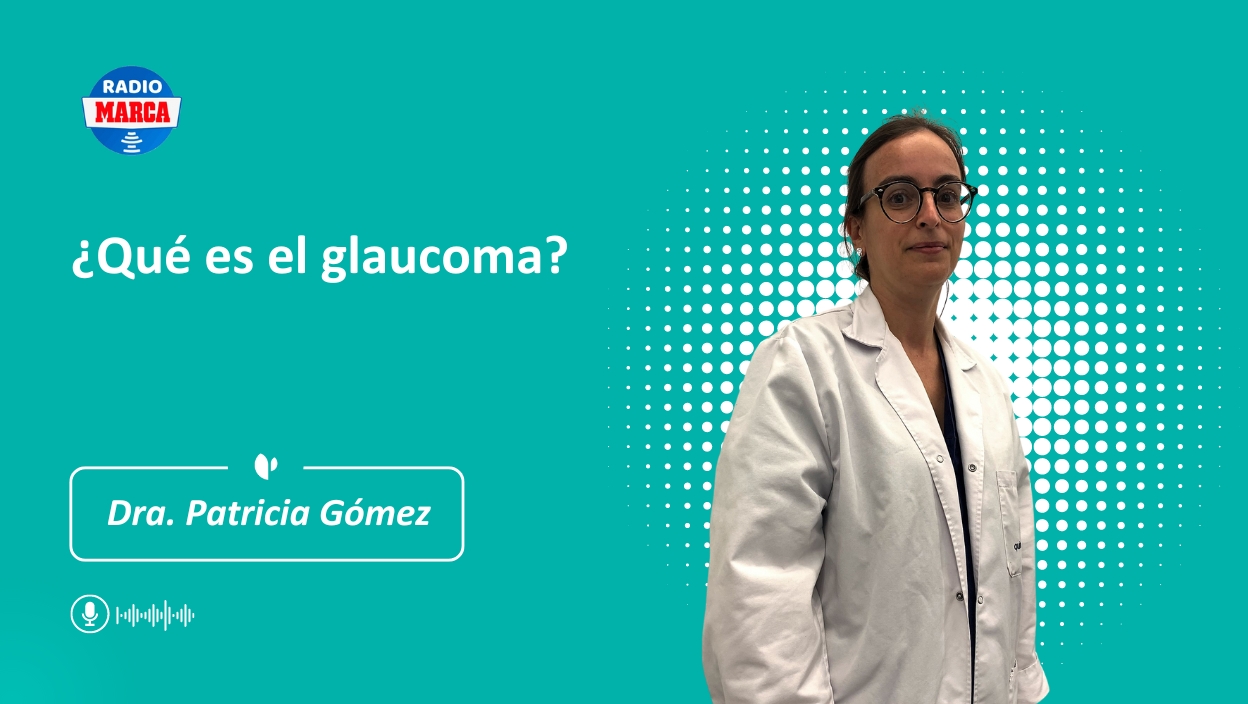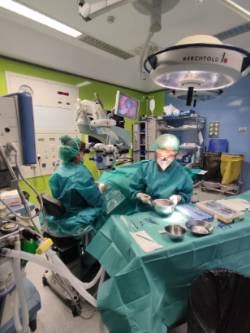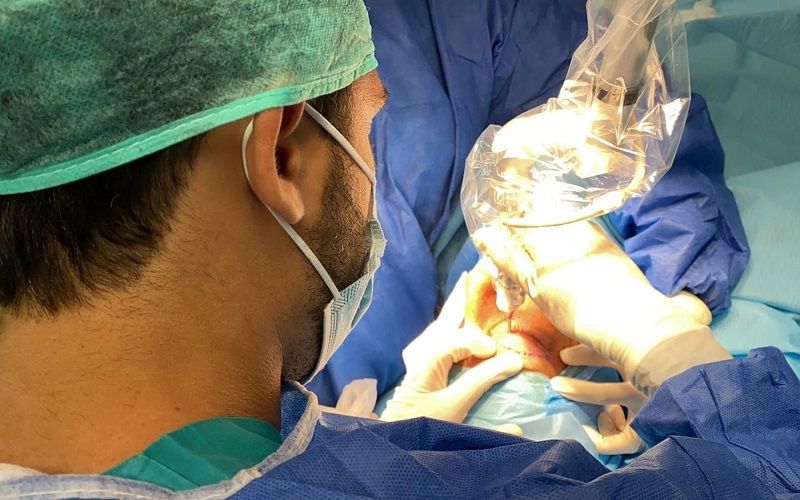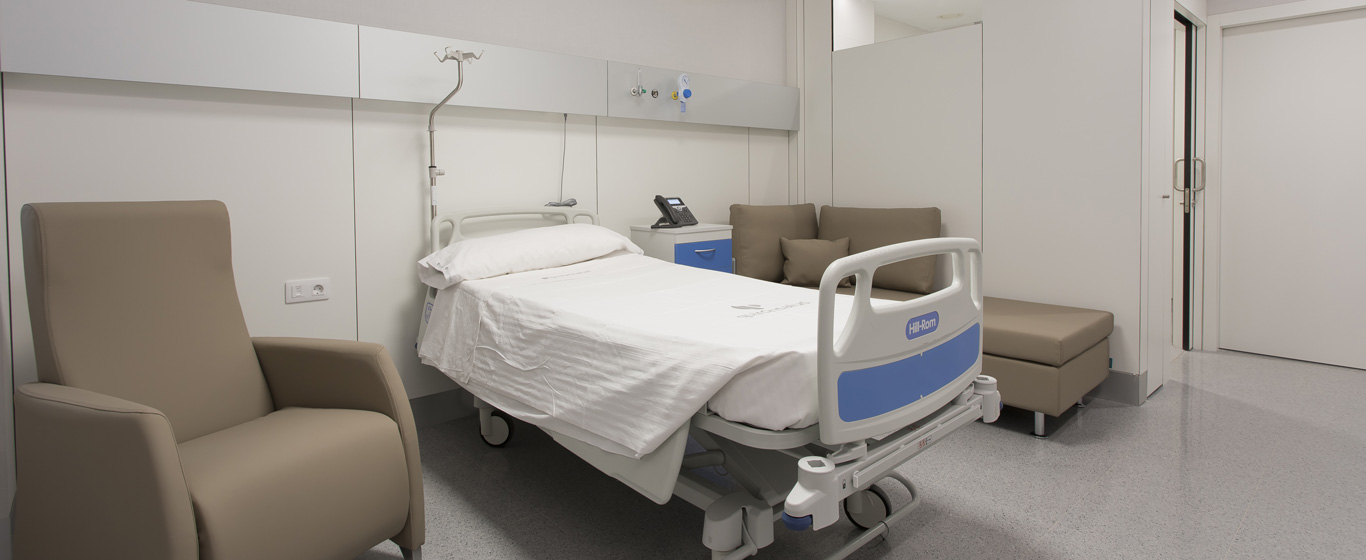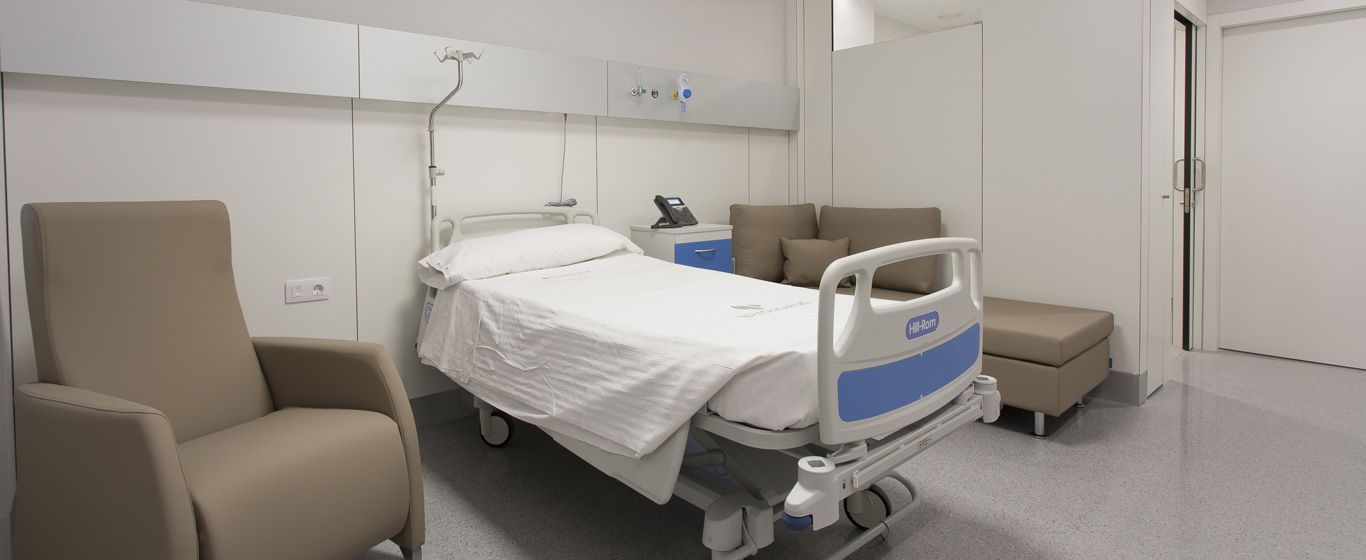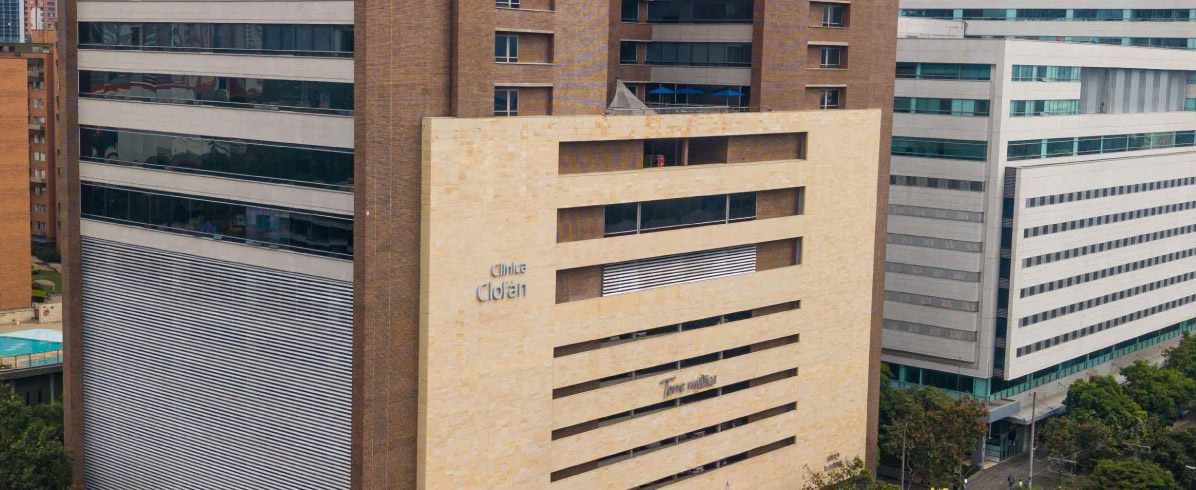Ophthalmology
Find out everything you need to know about ophthalmology and the main eye pathologies. Find out about the different subspecialties in this branch of medicine, and the different tests and surgeries that are most often performed. Book your consultation at one of our hospitals, we will also advise you on when to see an ophthalmologist.
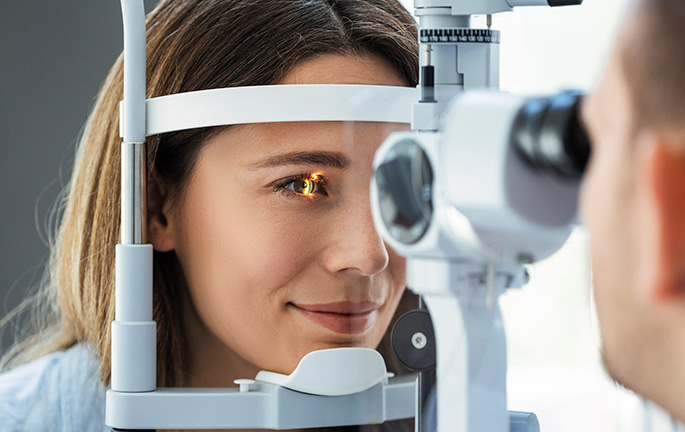
What is ophthalmology?
Ophthalmology is a medical-surgical speciality that deals with the prevention, diagnosis and treatment of eye diseases. Our eye care specialists not only treat eye organ abnormalities and diseases, but also detect and correct refractive errors in patients with healthy eyes.
What does ophthalmology study?
Ophthalmology studies the physiology and functioning of each and every one of the organs relating to the eye. Our Quirónsalud ophthalmologists specialise in different areas to offer specific treatment for each part of the eye and each condition.
- Retina and vitreous specialists: they deal with diseases affecting the retina, uvea and vitreous body, which require early treatment to obtain optimal results.
- Cornea and eye surface specialists: they study infectious, inflammatory, immune or degenerative pathologies affecting the cornea and conjunctiva.
- Glaucoma specialists: they work to promote prevention and achieve early diagnosis of glaucoma (optic nerve disease), as this is essential to prevent irreversible vision loss.
- Oculoplastic surgery: repairs conditions of the eyelids, tear ducts and orbit, as well as reconstruction of the eye and the facial structure that supports it.
- Neuro-ophthalmology: offers multidisciplinary treatment, as it studies diseases that are not strictly eye-related, but which present ocular symptoms or directly affect vision. In most cases, these visual disorders are caused by neuronal or cerebral pathologies.
- Refractive surgery specialists: in charge of analysing and indicating the most suitable surgical technique for the elimination of glasses and/or contact lenses, either with laser treatment or intraocular lens implants.
- Cataract specialists: in charge of performing cataract surgery with state-of-the-art technology. They provide personalised advice on the different types of lenses available on the market, depending on the characteristics of the eye and the visual needs of the patient, and in many cases helping them achieve spectacle independence
Which patients is it for?
Ophthalmology is aimed at treating eye conditions that can occur throughout the different stages of life, which is why we treat all kinds of patients, from newborns to the elderly. In addition to conditions relating to the patient’s age, ophthalmologists are also responsible for educating in visual health, repairing injuries or correcting refractive errors and preventing vision loss.
Techniques, procedures and diagnostic methods
Both surgery and diagnostic procedures in ophthalmology must be very precise. In this respect, advances made in recent years have contributed to the improvement of technique and results. Among the most commonly used by ophthalmologists are the following:
- Optical coherence tomography (OCT): diagnostic imaging used to obtain cross-sectional images of the retina to study its layers and determine its thickness.
- Pupillary dilation: involves the application of drops that widen the pupil in order to better see the state of the optic nerve and the retina.
- Campimetry or visual perimetry: examines the extent of peripheral and lateral vision by stimulating the eye with flashes of light of varying intensity. Essential in diseases such as glaucoma.
- Ocular biometry: used to determine the parameters of the eyes of patients who are about to undergo refractive or cataract surgery. This data helps to determine the power of the lens to be implanted during the operation.
- Retinography: popularly known as fundus imaging, it involves taking a digitalised image of the back of the eye, and enables the detection of eye problems as well as screening for ocular manifestation of common diseases such as diabetes or hypertension.
- Visual acuity test: an optometric test that assesses the ability of patients to see at a distance and at close range
- Topography: assessment of the cornea, which allows us to obtain maps that are essential prior to refractive surgery or cataract surgery with premium lenses.
- Aberrometry: study carried out to determine visual quality which helps us rule out those patients in whom the implantation of a multifocal or premium lens in cataract surgery is NOT recommended.
- Angiography: procedure to see how the blood flows through the interior of the eyeball. In the past it was performed by injecting a contrast agent, but with the new devices available, the test can be performed without contrast in the majority of cases, thus avoiding allergic reactions.
Diseases and symptoms
Main pathologies and diseases
The eye diseases most often treated in a consultation include:
- Conjunctivitis
- Myopia
- Astigmatism
- Hyperopia
- Cataracts
- Glaucoma
- Blepharitis
- Retinal detachment
- Strabismus
- Uveitis
- Myodesopsia or floaters
- Macular degeneration
Related symptoms
Some of the most prominent symptoms of eye diseases include:
- Headache or ocular migraine
- Swollen eyelids
- Double vision
- Swollen tear duct
- Eye pain
- Blurred vision
- Nearsightedness
- Farsightedness
- Uncoordinated eye movements
- Flashes of bright light
- Reddening of the eyes
- Sensitivity to light
- Eye dryness
- Distorted vision
About the ophthalmology consultation
We solve any doubts you may have before you see the specialist
At your first ophthalmology consultation we will take your medical history and family background. Then the ophthalmologist will carry out an eye examination, which may vary depending on the symptoms reported and the patient’s age. However, it usually includes a visual acuity test, refraction exam or study of the necessary optical correction, measuring eye pressure, pachymetry and retinography for the study of the fundus.
In certain cases, depending on the symptoms, history or preliminary examination, different complementary tests will be carried out.
What should you keep in mind?
At Quirónsalud we recommend an annual check-up. It is also essential to see an ophthalmologist when you notice symptoms such as changes or loss of vision, eye pain, flashes when blinking, double vision or dry eyes.
We advise you not to wear contact lenses for at least one hour before the appointment, as they can temporarily change the shape of the cornea.
What should I take to the appointment?
To make the appointment with the specialist as efficient as possible, we recommend that you bring a list of symptoms and concerns that you want to share with the ophthalmologist. It can also help the diagnosis to bring your current prescription and the prescription glasses you usually wear.
You may receive a questionnaire a few days before your appointment asking about your medical history, usual medication and other specific questions that will allow us to anticipate certain aspects of your consultation, helping us to expedite and personalise your care. To do this, we recommend that you download the free Quirónsalud Patient Portal application, which will facilitate communication with your healthcare team.
You may receive a questionnaire a few days before your appointment asking about your medical history, usual medication and other specific questions that will allow us to anticipate certain aspects of your consultation, helping us expedite your treatment and offer you a more personalised care. To do this, we recommend that you download the free Quirónsalud Patient Portal application, which will facilitate communication with your healthcare team.

If you have any further questions, please contact us through the Patient Services telephone number: 900 301 013



